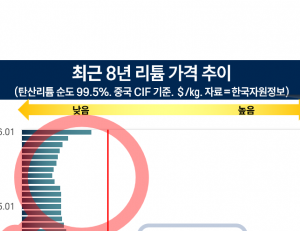Financial statement Quiz 2
<Part A>
1. Liabilities are typically classified on U.S. balance sheets as
a. monetary or nonmonetary
b. deductions from current assets
c. current liabilities, long-term debt, or other long-term liabilities
d. payables
2. To record the purchase of equipment that is fully financed by the seller, you would
a. debit a liability and credit an asset
b. debit an asset and credit cash
c. debit an asset and credit a liability
d. debit an asset and credit shareholders' equity
3. Which of the following concepts is not part of the justification for using acquisition cost valuations for nonmonetary assets?
a. Objectivity
b. Net present value
c. Conservatism
d. Going concern
4. A midwestern public utility reports noncurrent assets as the first item on its statement of financial position. This practice is an example of the
a. industry practice
b. economic entity assumption
c. going concern assumption
d. revenue recognition principle
5. A T-account is often used as an analysis tool. When looking at a t-account, how would increases to an owners’ equity account be recorded?
a. increase the left side of the account (called a debit)
b. increase the left side of the account (called a credit)
c. increase the right side of the account (called a debit)
d. increase the right side of the account (called a credit)
KEY:
1. C
2. C
3. B
4. A
5. D
<Part B>
1. An "aging schedule" for accounts receivable is used to
a. classify categories of workers.
b. determine depreciation pools.
c. estimate the net realizable value of accounts receivable.
d. estimate inventory obsolescence.
Rock Aerospace Company signed a contract on April 1, Year 4, to build a satellite for $28,000,000. Estimated costs for the contract are:
Year 4 $ 5,600,000
Year 5 $11,200,000
Year 6 $ 5,600,000
Assume that actual costs incurred coincide with expectations. Cash collections of the contract price are as follows:
Year 4 $ 4,200,000
Year 5 $ 7,000,000
Year 6 $16,800,000
2. Income from the contract for Year 5 under the percentage-of-completion method is:
a. $1,400,000
b. $2,800,000
c. $3,360,000
d. None of the above
3. Refer to the Rock Aerospace Company example. Income from the contract for Year 5 under the cost-recovery-first method is:
a. $1,400,000
b. $2,800,000
c. $4,200,000
d. None of the above
4. Although the transfer of ownership has not occurred before the recognition of revenue under the percentage-of-completion method, this method is acceptable under the revenue recognition principle because
a. the assets are readily convertible into cash
b. the production process can be readily divided into definite stages
c. cash has been received from the customer
d. the construction of the asset is considered the most crucial event in the earnings process
Cowden Properties sold a condominium to Ms. Roberts for $90,000. Cowden originally acquired the condo at a cost of $40,000 and made improvements to the unit totaling $20,000. The contract for sale required Ms. Roberts to pay the $90,000 as follows:
Year 1 - $ 5,000; Year 2 - $10,000; Year 3 - $30,000; Year 4 - $45,000
5. If Cowden uses the installment method, how much is recognized as expense in year 3?
a. $10,000
b. $15,000
c. $20,000
d. $30,000
KEY:
1. C
2. B
3. D
4. D
5. C
<Part C>
1. Depreciation expense is added to net income under the indirect method of preparing a Statement of Cash Flows in order to
a. report all assets at gross book value
b. ensure depreciation has been properly reported
c. reverse non-cash charges deducted from net income
d. calculate net book value
2. On the statement of cash flows, the issuance of capital stock for cash is treated as a/an
a. investing activity
b. financing activity
c. outflow of cash from operations
d. expenditure not requiring the use of cash
3. If cash decreases by $10,000 during the year, liabilities decrease by $5,000, and shareholders' equity increases by $5,000, what is the total change in noncash assets for the year?
a. a decrease of $5,000
b. an increase of $10,000
c. a decrease of $10,000
d. an increase of $5,000
4. Increased earnings
a. are reflected as an increase in cash flow
b. do not always generate an increase in cash flow
c. result in a decrease in cash flow only if dividends are paid
d. result in a increase in cash flow only if dividends are paid
KEY:
1. C
2. B
3. B
4. B
※출처를 밝히면 자유롭게 인용 가능합니다.

